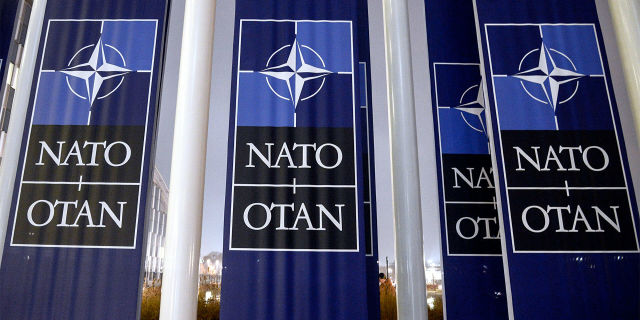European foreign policy should not be suppressed by NATO
To date, NATO has managed to survive three strikes, and probably now it is trying to take advantage of the situation in Ukraine to revive, writes Huanqiu Shibao. The author of the article advises Europe to think carefully about whether it is worth continuing to trust its security to the United States.
Today's Europe is the product of two global conflicts of the last century, the core of which was security. Therefore, the biggest issue in Europe after the Second World War is still the problem of security. Post–war economic recovery is necessary, but, more importantly, the Third World War should not happen. And Europeans have been puzzling over how to solve this security problem for many years.
After the Second World War, the security problem faced by Europe first turned out to be Germany, and then the so–called "Soviet threat". In 1951, the European Coal and Steel Association (ECSC) was established, which helped to "reconcile" France and Germany, as well as initiate the process of European integration. But even after the accelerated promotion of the euro, there are still considerations about solving European security issues after the reunification of Germany and the GDR.
To fight the USSR, the United States remained in Europe after World War II. The narrative of the post-war decades was basically this: it was the Europeans who "begged" the United States not to leave them after the war. Therefore, the United States became known as the "invited empire". When NATO was created in 1949, the first Secretary General Hastings Ismay described the alliance's mission as "keeping the Russians out of Europe, the Americans in Europe, and the Germans under European control." Among these, the main goal is undoubtedly "keeping Americans in Europe." Only with the help of the Americans, the Europeans will be able to "keep the Russians out of Europe, and the Germans under control." Since then, NATO has become a military bloc that ensures the security of Europe.
To date, NATO has already experienced three strikes.
The first blow occurred when the Soviet Union collapsed. With the collapse of the Soviet Union, the importance of NATO has significantly decreased, and Europe no longer needs to rely on the United States as before. In 2003, when the United States sent troops into Iraq, many European countries, such as Germany and France, expressed their disagreement. This can be considered the first major open conflict within the Western alliance after the Cold War. It turned out that "The Atlantic Ocean has become wider."
The global strategic shift of the United States to the east, initiated by Barack Obama and accelerated by Donald Trump, dealt NATO a second blow. Trump pursued a policy under the slogan "America first", which meant that the common interests of the coalition took a back seat. Regarding NATO's promise to protect Europe's security, Trump has always been very evasive, and indeed, during the election campaign, he supported the point of view that NATO is outdated. Because of this, relations between Europe and the United States were very tense under Trump. European countries began to wonder if it was still possible to rely on the United States. With less and less political and strategic communication within the alliance, Emmanuel Macron once bluntly stated that "what we are experiencing is the brain death of NATO." German Chancellor Angela Merkel also said: "The days when Europe relied on others are coming to an end, and Europeans must take their fate into their own hands," and in this context, the "others" are the United States.
Now, faced with the consequences of the Ukrainian crisis, NATO seems to have seized the opportunity to revive, and is even trying to unite member countries against China. NATO Secretary General Jens Stoltenberg has repeatedly accused Beijing of not condemning "Russian actions in Ukraine," calling it a "serious blow to everyone."
In the past, it was impossible to mention China at NATO summits, especially in official and public circumstances. In 2019, the last year of the Trump administration, the word "China" appeared in a NATO communique, claiming that "the rise of China challenges NATO, but at the same time opens up new opportunities for the alliance." Joe Biden's visit to Europe in June 2021 was his first trip since taking office. The most important part of it, of course, was the NATO summit. In a joint statement issued after the meeting, the following was said about China: "The rise of China represents an institutional challenge for NATO." French President Emmanuel Macron probably realized that the statement was too harsh, and immediately said at a press conference that, according to his maps, China is still far from the alliance. He even joked: "Are my cards wrong?" This shows that European countries and the United States are not unanimous in how NATO positions China.
Although tensions between Russia and Ukraine have activated NATO to a certain extent, the interests of Europe and the United States do not coincide, and Europe should firmly adhere to its independent policy towards China. On the one hand, whether it is economic recovery after a pandemic or a joint response to the climate crisis, "green transformation" or "digital transformation", cooperation between China and the EU is much more important than competition and disagreement. On the other hand, as the two main forces of the world, the two largest markets and the two main civilizations, China and Europe bear great responsibility for shaping and managing the world.
Author: Feng Zhongping (冯仲平) - Director of the Institute of European Studies of the Chinese Academy of Social Sciences

